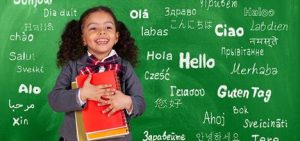
Learning to read and write in two languages can actually increase the development of phonological and phonemic awareness and metacognitive abilities in children. This systematic review explores how bilingualism affects the literacy development in children. Researchers analyzed 50 studies on bilingual children’s reading and writing development and found that biliteracy enhances cognitive flexibility, metalinguistic awareness, and phonological skills. In other words, bilingual kids become better at noticing how language works and being able to handle multiple mental tasks. It was also found that children who learn to read and write first in their home language tend to perform better when learning these skills in their second language. Bilingual education programs, especially dual-language models, help children strengthen both languages at once. Parents and communities also play a big factor in the literacy of children, as supportive home environments, access to books in both languages, and positive attitudes toward bilingualism all contribute to literacy success. On the other hand, low socioeconomic status or limited school support can make biliteracy development more challenging. Being bilingual doesn’t just build linguistic skill, it also shapes identity and confidence. Children who see their languages as assets feel more empowered in school and later on in life.
To read more, click here!
Alexandra Lagaros
UConn KIDS Research Assistant